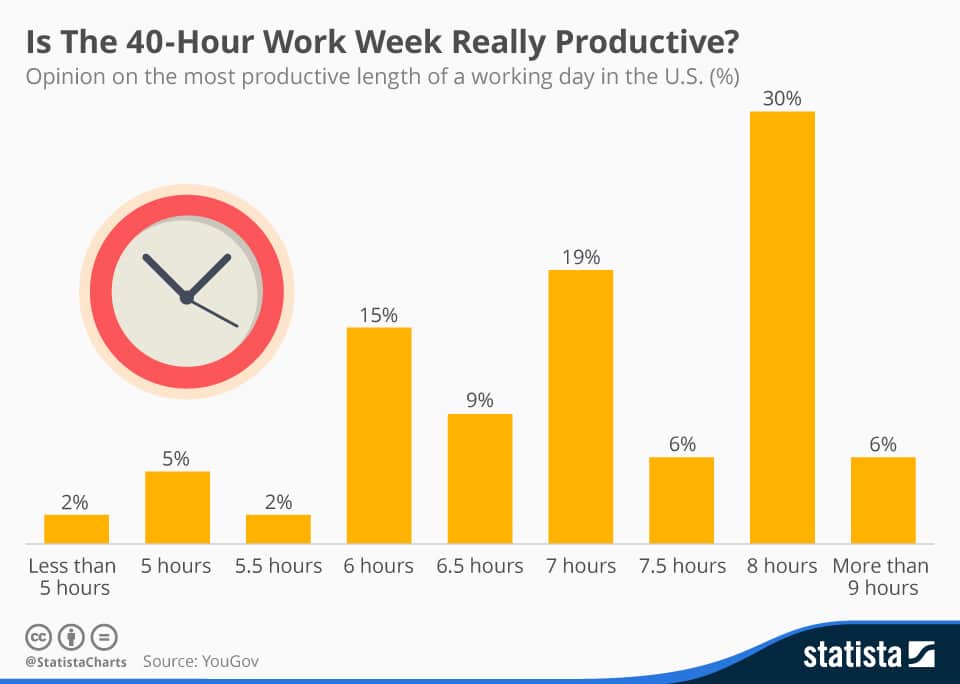I Stopped Working Overtime and Got a 15% Raise: The Psychology Behind Workplace Boundaries
Aug 13, 2025
Discover how setting workplace boundaries and working strict 9-5 hours can actually lead to promotions and raises. Learn the counterintuitive psychology behind why overworking hurts your career and how to position yourself as competent and focused.

The Story That's Breaking the Internet
A Reddit post that garnered over 25,000 upvotes has sparked a massive conversation about work culture, and the story might completely change how you think about career advancement. Here's what happened:
An employee who had been the "office try-hard" for years—first to arrive, last to leave, answering emails at midnight—had asked for promotions three times, only to be told "we see your potential, just need to wait for the right timing." After being passed over again for someone who "played golf with the VP," they hit their breaking point.
The twist? When they started working strictly 9-5, turning off email notifications after hours, and saying "no" to tasks outside their responsibility, something shocking happened: their boss gave them a 15% raise for "showing impressive growth in prioritization and efficiency."
Why Overworking Actually Hurts Your Career

The comments on this viral post revealed a psychological truth that most workers don't realize: overworking often makes you appear less competent, not more dedicated.
One top commenter nailed it: "People who are over working, staying late, always hustling give the mistaken appearance they are always behind, catching up at last minute, overwhelmed, can't keep up."
This creates a devastating perception problem:
The Overworker's Image Problem
- Reactive, not proactive: Always appearing to catch up suggests poor planning
- Overwhelmed and scattered: Juggling too many tasks reduces perceived competence
- Poor time management: If you're always staying late, you must not be efficient
- Worker bee mentality: Too deep in details to be considered leadership material
The Boundary-Setter's Advantage
- Calm and collected: Appears more competent and in control
- Strategic focus: Concentrated effort on high-value work
- Executive presence: Operating at a higher level with clear priorities
- Respected time: Others value what you protect
The Science Behind the 40-Hour Sweet Spot

Research consistently shows that productivity peaks around 40 hours per week. A Stanford study found that:
- Productivity declines rapidly after 50 hours
- Workers putting in 70 hours accomplish about the same as those working 56 hours
- Quality of work suffers significantly with extended hours
- Decision-making becomes impaired with chronic overwork
One commenter perfectly captured this: "There's a point with thinking work where you're actually getting negative output, essentially making mistakes you'll have to fix the next day."
The Manager's Perspective: What Really Gets You Promoted
The viral thread revealed crucial insights about what managers actually value:
What Managers Think When You Overwork
When employees consistently work excessive hours, managers often interpret this as a sign that they can't prioritize effectively or manage their workload strategically. There's also concern that these employees have no boundaries and will inevitably burn out, making them unreliable in the long term.
Many managers worry that overworking employees are too afraid to escalate issues or ask for help when needed, and some even question whether the employee might be incompetent if they consistently need so many hours to complete their tasks.
What Managers Think When You Set Boundaries
In contrast, employees who set clear boundaries are viewed much more favorably by management. They're seen as strategic and focused individuals who can deliver quality work efficiently without needing excessive time. Managers recognize that these employees know how to prioritize their tasks effectively and often view them as having leadership potential because of their ability to manage both their work and their time professionally.
As one manager commented:
"As a boss we like proactive, and looking like you have big things under control looks proactive."
The Fear Factor: Why Your Boss Suddenly Cares
Many commenters identified the real reason for the sudden raise: fear of losing a valuable employee.
The pattern is clear:
- Employee shows signs of disengagement (working normal hours, setting boundaries)
- Manager recognizes this as "quiet quitting" behavior
- Manager panics about losing good talent
- Manager offers raise/promotion to retain employee
One insider revealed: "Boss realized how screwed they are if the employee left. For years, the employee chose to work really hard. Boss thinks, 'Have at it. But I hope they don't expect us to bump up their recompense.' Only when the employee gave off 'I'm moving on soon' vibes, did the boss feel the need to sweeten the pot."
The Quality vs. Quantity Revolution

The most profound insight from this story is about work quality. When you:
- Stop taking on everyone else's problems
- Focus only on your core responsibilities
- Work during normal business hours
- Maintain mental and physical energy
Your work quality naturally improves. The original poster confirmed: "Instead of juggling everything, I'm focusing on what matters in my role during work hours. Turns out that's what my boss wanted all along."
The Perception Paradox: Looking Busy vs. Being Productive
"When you say yes to every request, people assume you have the time to do it. Once you start saying no, people assume it's because you're busy with other work."
This creates a powerful perception shift:
- Before: "They're available for everything = not that important/busy"
- After: "They're selective about commitments = must be working on important things"
The Long-Term Career Benefits
Setting boundaries creates lasting career advantages:
Immediate Benefits
When you establish clear workplace boundaries, you'll notice immediate improvements in several key areas. Your work quality naturally improves as you become more selective about tasks and focus your energy on what truly matters. You start feeling better, as the constant stress of overcommitment begins to fade. With reduced distractions and a clearer sense of priorities, you'll find your focus and creativity are enhanced, and yoi get more productive.
Perhaps most importantly, you'll be able to nurture stronger personal relationships as you reclaim time and energy for the people who matter most in your life.
Long-Term Advantages
- Leadership positioning: Seen as strategic and organized
- Respect factor: Colleagues value your time and input
- Energy sustainability: Can maintain high performance long-term
- Promotion readiness: Demonstrates management potential
What This Means for Your Resume
This boundary-setting approach should also transform how you present yourself professionally:
Instead of highlighting:
- "Available 24/7 for urgent requests"
- "Managed multiple projects simultaneously"
- "Exceeded expectations by working evenings and weekends"
Emphasize:
- "Improved team efficiency by 15% through strategic prioritization"
- "Delivered high-quality results"
- "Streamlined processes to reduce overtime needs across department"
The Bigger Picture: Changing Work Culture
This viral story represents a larger shift in work culture. Employees are recognizing that:
- Martyrdom doesn't equal advancement
- Boundaries demonstrate professionalism
- Quality trumps quantity in knowledge work
- Sustainable performance beats burnout cycles
The most successful professionals are those who work smart, not just hard.
The Bottom Line: Respect Yourself First
The most powerful lesson from this viral story isn't about gaming the system—it's about self-respect. When you value your time and energy, others learn to value it too. When you focus on quality over quantity, your contributions become more significant, not less.
The employee who got that 15% raise didn't become less dedicated—they became more strategic. They didn't care less about their job—they cared more about doing it efficiently.
Ready to Transform Your Career Approach?
Your career deserves the same strategic focus you'd apply to any important project. At UseResume, we help professionals articulate their value proposition clearly and effectively.
Our AI-powered platform helps you craft resumes that highlight your strategic thinking, efficiency, and professional achievements—the qualities that actually get you promoted.
Start building your strategic career narrative today and discover how clear positioning can transform your professional trajectory.
Looking for more career strategy insights? Check out our other articles on professional boundary setting, strategic career positioning, and workplace psychology that can accelerate your advancement.
Ready to build your AI resume?
Join thousands of successful job seekers who've landed their dream jobs using our AI resume builder
No credit card required. Try our AI resume builder risk-free.